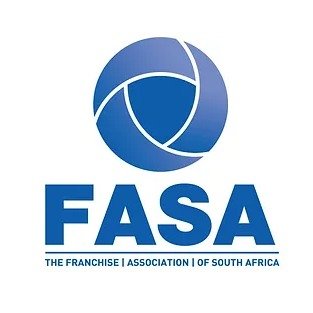Best Business Registration Lawyers in Pretoria
Share your needs with us, get contacted by law firms.
Free. Takes 2 min.
List of the best lawyers in Pretoria, South Africa
About Business Registration Law in Pretoria, South Africa
Business registration in Pretoria, South Africa, is governed by national and regional laws that aim to streamline the process of starting and operating a business. Compliance with these regulations is essential for legal recognition and operation. The Companies and Intellectual Property Commission (CIPC) is primarily responsible for the registration of businesses in South Africa. Registration gives businesses legal standing and enables them to operate formally within the local economy.
In Pretoria, as in the rest of South Africa, business entities such as sole proprietorships, partnerships, private companies, and public companies must be registered. Additionally, adherence to local municipal regulations and obtaining the necessary licenses and permits is also crucial.
Why You May Need a Lawyer
The process of registering a business involves navigating various laws and regulations. Here are some common situations where legal assistance might be useful:
- Understanding the different types of business entities and selecting the most appropriate one for your venture.
- Drafting and reviewing legal documents, including articles of association and shareholder agreements.
- Ensuring compliance with local regulations and obtaining necessary permits and licenses.
- Handling complex matters like intellectual property registration alongside business registration.
- Assisting in the resolution of disputes between business partners or with regulatory authorities.
- Navigating tax implications and structuring the business for tax efficiency.
Local Laws Overview
Business registration in Pretoria is influenced by both national laws and local regulations. Some key aspects include:
- Companies Act 71 of 2008: Governs the registration and management of all companies in South Africa.
- Close Corporations Act: Although new registrations are not permitted, existing corporations must adhere to this Act.
- Municipal Bylaws: These affect local licensing and zoning regulations. Businesses must comply with city-specific rules.
- Black Economic Empowerment (BEE) Regulations: BEE compliance is crucial for businesses seeking to engage in public procurement and other activities.
- Tax Laws: VAT registration and Income Tax compliance are critical for business operation.
Frequently Asked Questions
What types of business entities can I register in Pretoria?
You can register a sole proprietorship, partnership, private company (Pty) Ltd, public company (Ltd), or non-profit organization, among others.
How long does it take to register a business?
Business registration typically takes a few days to several weeks, depending on the type of business entity and complexity of the registration process.
Do I need a physical address in Pretoria to register my business?
Yes, a physical address for business correspondence is required. This is especially relevant for compliance with zoning laws.
Is it mandatory to have a South African bank account for my business?
While not strictly mandatory, having a South African business bank account is recommended for easier financial management and compliance with financial regulations.
What documents are needed for business registration?
Commonly required documents include identification for the owners and directors, proof of address, initial proposed company name, and the Memorandum of Incorporation.
Can I register a business on my own, or do I need a lawyer?
You can register a business on your own through the CIPC, but a lawyer can provide valuable assistance in handling legal documentation and ensuring compliance with the law.
How much does it cost to register a business?
Costs vary based on the type of business entity. Basic registration fees can be minimal, but other costs may include notary fees, legal consultations, and additional licenses.
What ongoing compliance is required after registration?
Ongoing compliance may include annual returns, tax filings, and maintenance of accounting records, among other obligations specific to the business type and sector.
What are the repercussions of not registering a business?
Operating without registration can result in fines, inability to enforce contracts, and potential legal action. It also restricts access to formal business opportunities.
Is a trading license required in addition to business registration?
Yes, certain businesses require a trading license from the local municipality to operate legally in Pretoria.
Additional Resources
Below are some helpful resources for anyone seeking guidance on business registration:
- Companies and Intellectual Property Commission (CIPC): The primary body governing business registration at the national level.
- Pretoria City Council: Provides guidance on municipal regulations and permits.
- South African Revenue Service (SARS): For tax registration and compliance information.
- Department of Trade, Industry, and Competition: Offers resources on small business development and support.
Next Steps
If you require legal assistance with business registration in Pretoria, consider the following steps:
- Research and engage a lawyer specialized in commercial law or business registration.
- Prepare your business plan and gather necessary documents to expedite the registration process.
- Consult with legal professionals to understand your obligations and achieve compliance with local laws.
- Schedule a consultation to discuss specific issues such as business structure, tax efficiencies, and licensing requirements.
- Continuously educate yourself on updates in business laws and practices to ensure ongoing compliance.
Lawzana helps you find the best lawyers and law firms in Pretoria through a curated and pre-screened list of qualified legal professionals. Our platform offers rankings and detailed profiles of attorneys and law firms, allowing you to compare based on practice areas, including Business Registration, experience, and client feedback.
Each profile includes a description of the firm's areas of practice, client reviews, team members and partners, year of establishment, spoken languages, office locations, contact information, social media presence, and any published articles or resources. Most firms on our platform speak English and are experienced in both local and international legal matters.
Get a quote from top-rated law firms in Pretoria, South Africa — quickly, securely, and without unnecessary hassle.
Disclaimer:
The information provided on this page is for general informational purposes only and does not constitute legal advice. While we strive to ensure the accuracy and relevance of the content, legal information may change over time, and interpretations of the law can vary. You should always consult with a qualified legal professional for advice specific to your situation.
We disclaim all liability for actions taken or not taken based on the content of this page. If you believe any information is incorrect or outdated, please contact us, and we will review and update it where appropriate.















